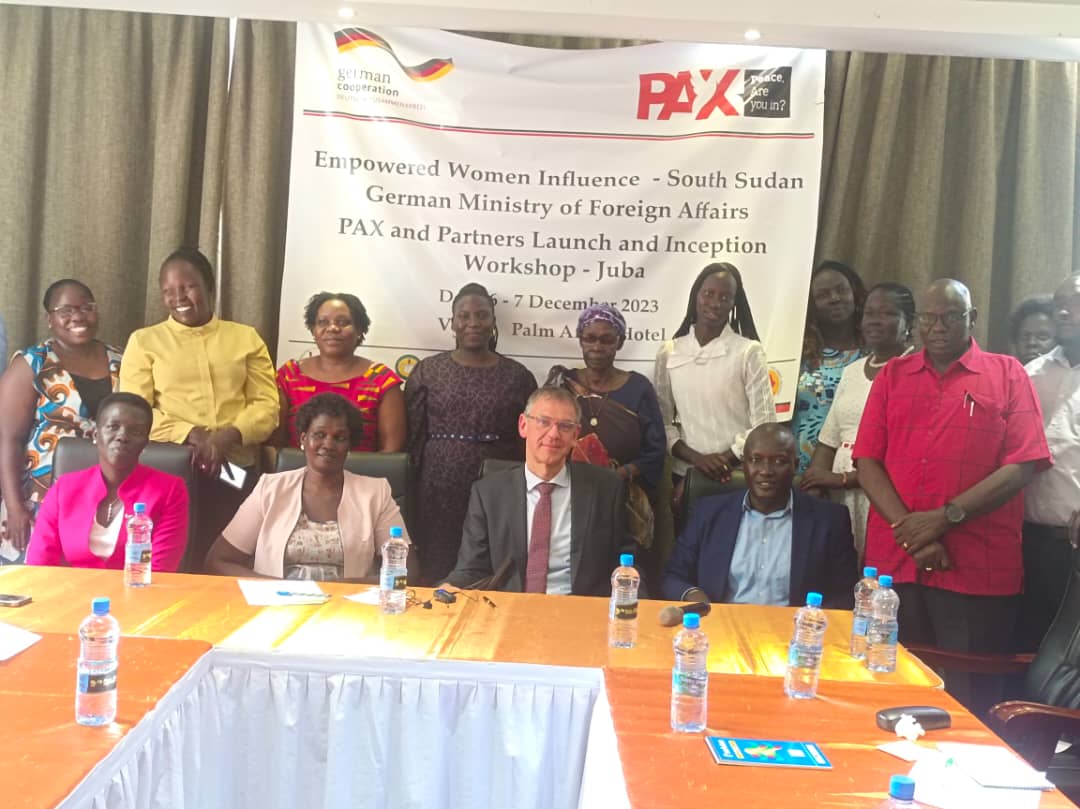PAX South Sudan with support from the German Federal Agency for Foreign Affairs has launched a project that aims to empower women to influence legislation and judicial processes to end Sexual and Gender-based violence.
The project, titled: “Empowered Women Influence” with financial support of about 3,630,652 euros from the German government will be implemented by six partners in the next three years in Eastern Equatoria, Upper Nile State, Unity State, Warrap, and Northern Bahr el Ghazal States.
The Project will solely provide technical training every year to 50 female parliamentarians, 3 female-led Civil Society Organizations, and 40 women advocates on legislation processes, Judiciary processes, democratic principles, reconciliation processes, and advocacy.
“This project is going to combat social-cultural causes of sexual and gender-based violence in South Sudan. This is the most important contribution of this project where the funding has been allocated
“It is a 3-year project that is going to run from 2023 with inception that we are starting today at the launch and is going until 2026,” said PAX, the Country Director Emmanuel Kani.
The German Ambassador to South Sudan Christian Sedat expressed optimism about the role the project will play in transforming the situation of women and girls in the country.
He called on the national government to join hands in allocating resources for gender transformative initiatives.
“I invite the transitional government to join us by allocating the necessary resources to gender transformative initiative. This will help translate the national government’s commitment to greater gender equality and a tangible improvement of the situation of women and girls in South Sudan.”
For her part, the Deputy Director for Gender at the National Ministry of Gender, Child and Social Welfare Susan Wasuk Felix expressed the government’s gratitude for the project launched.
“We appreciate the support the Embassies are putting on the government of South Sudan and the national and international organizations that are supplementing the activities,
“This is the role of the government to implement such projects but the limitation of resources with the government institutions, is why you have been coming in and we appreciate you for not having sleepless nights to ensure that the people of South Sudan are supported at all levels”.
Roselyn Gama is the Gender Project Officer at the Netherlands Embassy she stresses that women’s participation in top leadership is still a challenge in South Sudan.
She believes the project will contribute to capacitating women in leadership positions for the upcoming elections.
“Women participation in top leadership is still a challenge, we all know that and I believe the six women who are in this room advocating for legal frameworks will use this opportunity to push for the Anti GBV Bill, Family Bill, and other important Bills such as the Enterprise Bill that are still pending
“And if we talk about women’s influence, I believe that economic empowerment has a big say in this in South Sudan.
‘So I believe that the influence through this project will not only be able to contribute to the peace process but capacitate you in preparations for your leadership positions in the upcoming elections.”

